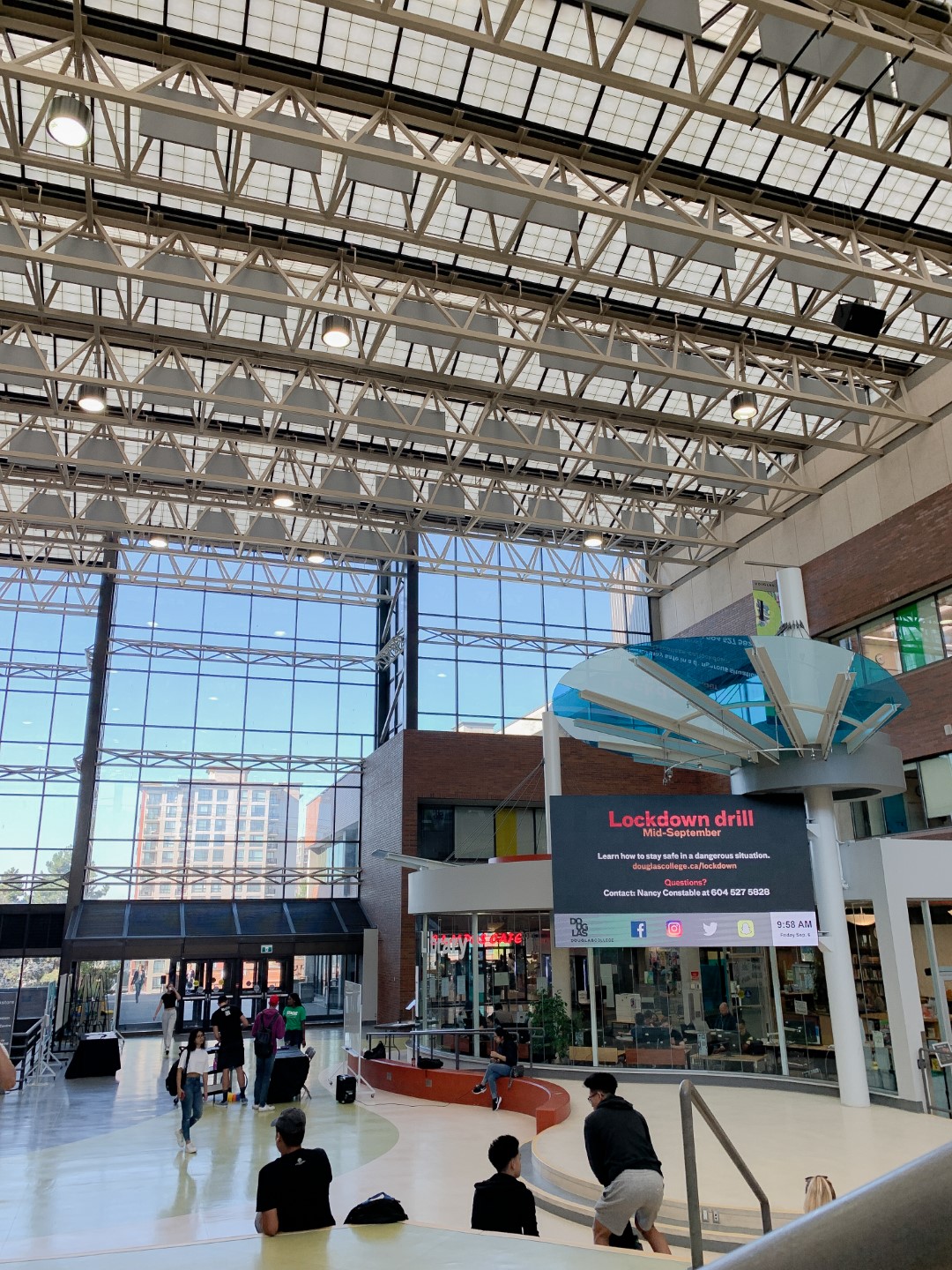
Do lockdown drills really help?
By EG Manilag, Staff Writer
When it comes to an event of a violent intruder on campus, in a matter of seconds, things can go terribly south. So be prepared.
I was making my way to my psychology class at the David Lam campus when a pamphlet was handed down to me from a security staff that said, “lockdown drill today.” At the back were the safety tips and reasons for doing the drill. It was around 10 a.m. when a beeping sound from the PA system permeated the whole room—it was time for the lockdown. The professor instructed us to lock and barricade the door, cover the windows, turn off lights, set our phones to silent, and go to the back of the classroom staying low and staying quiet. About eight minutes later, an all-clear message was given from the PA, the drill was over, and classes resumed.
A lot came into my mind after the drill, especially the thought that what if it was real? Would I be safe in that scenario? Will I have a greater chance of surviving because I followed the instructions?
Lockdown drills are practiced in an unlikely event of a violent intruder, particularly active shooters. It is a set of procedures designed to keep occupants in a building prepared and safe. Especially in our neighboring country the US, lockdown drills are prevalently intensified since mass shootings are more common across their country. According to ABC News, there have been at least 19 deadly mass shootings in the US so far in 2019. Canada, on the other hand, has relatively low records on mass shootings in the recent years, thankfully, but the Canadian government’s efforts of preparation for public safety are stern.
Evie Blad, a writer for Education Week, specifies that many parents, however, oppose to such instruction for they deem trauma and other psychological effects to be ingrained among their children. They also petitioned that drills are more likely to be counterproductive, rather than helpful to their kids.
Mr. Spencer Bokat-Lindell, a writer in The New York Times, states in his article, “‘It’s Sick That We Have to Do This’: Do We Really Need Shooter Drills,” that as traumatizing as mass shootings are, the chances of being killed in one is equivalent to being struck by lightning, very rare. With all these being said, why continue making drills? When all it does is, more likely than not, damage kids?
“But fires are also rare,” said Dan Rambler, Akron Elementary School district director of student services and safety, “and that doesn’t stop schools from conducting regular fire drills.” Rambler offers a noteworthy view. As a matter of fact, because of regular fire drills being conducted in schools, students are more aware of where emergency exits, and safety routes are. Likewise, Alan Kazdin, professor of psychology and child psychiatry at Yale University, told NBC News that “repetition” is more important than “realism.” He said, “when you have fire drills, you don’t put smoke in the hallways. … You don’t have people panicking. But you practice it often enough, so people know what they’re doing.” Ultimately, they argue that preparing for the worst, is the least that all of us can do.
Now, for me, lockdown drills are the government’s initiative for public safety. It is highly debated and scrutinized—going through a series of voting and approvals—before enforcing it to schools and other institutions. Rather than disproving it, critics should at least suggest improvements as to how the school, their safety team, or the police initiate techniques and precautionary measures in an unlikely event.
Even though it is very unlikely to happen, by repeating and internalizing the directives, we can be calmer and more prepared when it happens, knock on wood. Lockdown drills should be often done in schools for anything can happen at anytime.
Going back to Douglas College’s lockdown drill, was it effective? Will I be safer because I now know the drill? Definitely. I am for sure that I know how to be safe when the unlikely is going to happen because basically, I already know the drill, and I can anticipate the possible scenarios and be calmer. Practice does not just make you perfect, it keeps you prepared and safe.
For tips on what to do in an unlikely event like this, go to: https://www.douglascollege.ca/about-douglas/safety-security-risk-management/lockdown-procedures.


